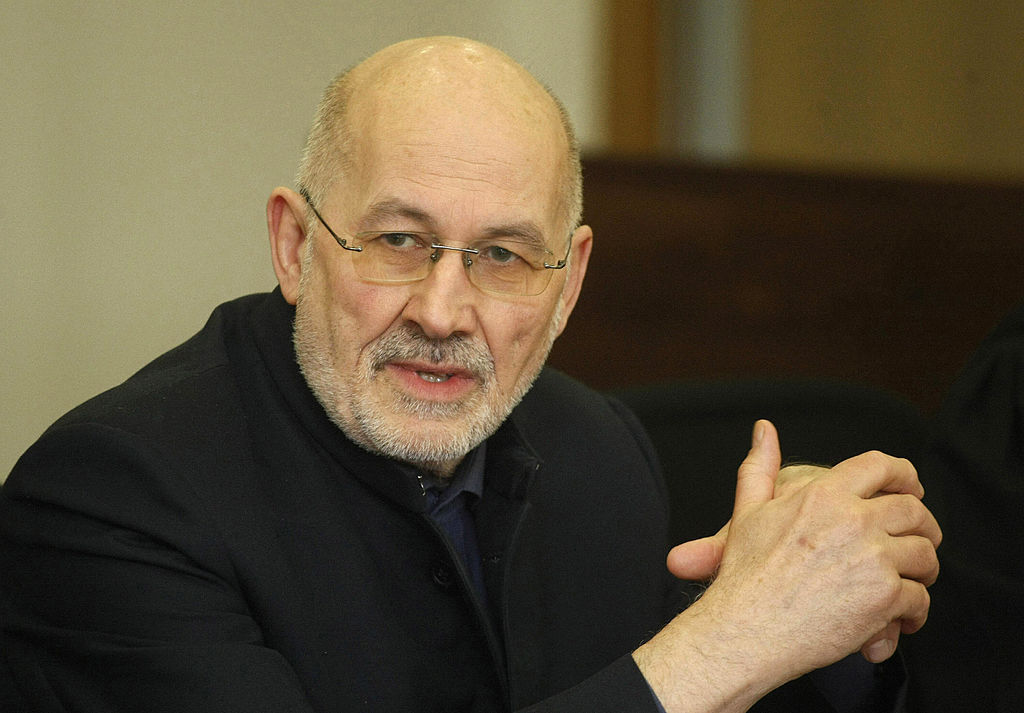One of the strangest German lives in the post-second world war era closed on 27 July 2025 with the death of Horst Mahler at the age of 89.
Mahler’s life epitomises the fatal German tendency for much of the 20th century to embrace extremist politics
Mahler’s life epitomises the fatal German tendency for much of the 20th century to embrace extremist politics of the far-left and ultra-right, since he converted from being a hunted and jailed leader and lawyer of the Red Army Faction (RAF) terrorist group, also known as the Baader-Meinhof gang, to become Germany’s most notorious neo-Nazi, an outspoken anti-Semite and a Holocaust denier – activities for which he also spent time in jail in his old age.
Even more extraordinarily, Mahler was also a one-time legal partner of his friend Gerhard Schroeder, Germany’s Social Democratic Chancellor from 1998 to 2005. As a young lawyer, Schroeder had defended Mahler and other RAF terrorists and led a successful campaign to readmit Mahler to the German Bar after he was briefly disbarred. If you want a British parallel, imagine Tony Blair defending members of the Angry Brigade in his youth.
Mahler was born in Silesia (now in Poland) in 1936. The family was forced to flee west in the face of the advancing Soviet Red Army at the end of the war. Mahler’s father was especially anxious to avoid the Russians, as he was an ardent Nazi, and appears to have passed his ideas on to his son.
At university, where he studied law, young Horst joined one of the ultra-nationalist and conservative ‘bursenschaften’ – elite student societies that combined drinking and duelling with sabres. He also joined the youth arm of Germany’s moderately left-wing Social Democratic Party (SPD) but soon migrated to the far-left Marxist wing of the movement.
The late 60s were a period of foment among West Germany’s students, with frequent violent clashes between police and students protesting against the Vietnam War and against the staunchly right-wing tabloid newspaper empire of Press tycoon Axel Springer.
After the shooting of the leftist Student leader Rudi Dutschke, Mahler converted his left-wing legal practice into a hotbed of the so-called ‘extra-Parliamentary opposition’. His lifelong journey into illegality under the cover of the law had begun.
Mahler became an active terrorist in 1968 when he organised the springing from a Berlin courtroom of Andreas Baader, an early leader of the RAF, and Baader’s girlfriend Gudrun Ensslin during the couple’s trial for firebombing a department store.
For much of the 1970s and 80s, West Germany was convulsed by the activities of the RAF, a violent group of middle-class radicals who pursued their version of the class struggle by shooting down working-class cops, bombing ‘bourgeois’ symbols like department stores and US army bases, robbing banks and kidnapping and killing business leaders. They moved between their targets in fast BMWs which were nicknamed ‘Baader-Meinhof Wagons’ as a result.
I lived in Germany at the time among such student leftists, and many a night passed in anguished debates in our communal flats as to whether the RAF’s violent acts were the right way of achieving a socialist society. One morning a flatmate seized me and pushed my face against the wall lest I should recognise and betray an on-the-run RAF fugitive who had spent the night in the apartment.
The thoroughly alarmed West German state responded to the challenge with crackdowns of dubious legality, but eventually the RAF militants were all hunted down and jailed. Here, some of them emulated the IRA and starved themselves to death, while others committed suicide with pistols smuggled into their cells by their lawyers.
Mahler was one of those lawyers before going on the run himself with a price on his head as a hunted terrorist. He spent some time with his comrades in Palestine, undergoing military training with the PLO which almost certainly fuelled his own growing anti-Semitism.
Returning to Germany, Mahler was finally caught and jailed. Hailed as a martyr by Germany’s far left, by the time of his release Mahler’s political views had undergone a dramatic sea change. At the funeral of a far-right activist, Mahler claimed that Germany was an ‘occupied land’, controlled by foreign forces in the pay of an international Jewish conspiracy. He put his new beliefs into practice by joining the neo-Nazi NPD party and defended it in court against attempts to ban it as unconstitutional.
He soon proclaimed such classic Nazi ideas openly, and for the last quarter century of his life the ageing Mahler was in and out of the jails where he had spent so many years, but this time for such crimes as Holocaust denial and trying to revive Nazism. By the end of his days Horst Mahler had returned to the warped ideas he had first learned at his father’s knee.







Comments